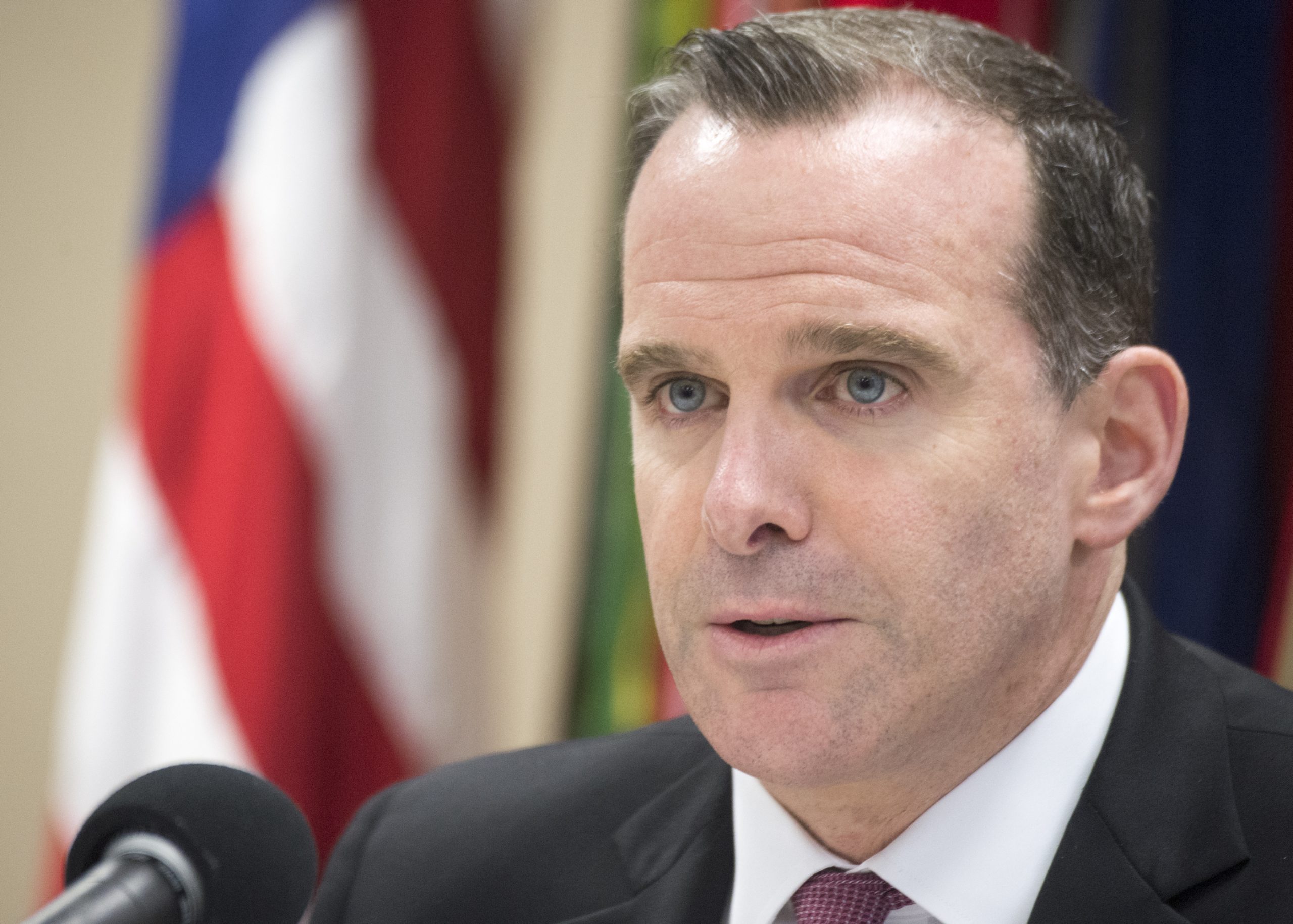Biden’s Middle East envoy Brett McGurk was in Doha to discuss a possible agreement for the release of the remaining captives held in Gaza.
U.S. President Joe Biden’s senior Middle East adviser Brett McGurk travelled to Qatar last week for “very serious” negotiations on another captive release deal, Washington’s National Security spokesperson John Kirby revealed on Tuesday.
“In fact, Brett McGurk was in Doha this [last] week, focused specifically on the hostage situation and on trying to move forward new proposals to bring them home. This will remain a top priority for us,” Kirby told a virtual briefing.
Kirby added that the U.S. is “hopeful” that Qatar’s mediation could secure the release of the remaining hostages from Hamas, which it said could be 100-to-140.
“What I can tell you is that we’re working on this very, very diligently. That is why Brett was in Doha this past week. I don’t want to get ahead of where we are, but we are having, I would say, very serious and intensive discussions in Qatar about the possibility of another deal,” he said.
U.S. Secretary of State Antony Blinken was also in Qatar on January 7 as part of a regional tour in a scramble for another captive release deal.
“Qatar was instrumental in the negotiations that led to the simultaneous release of more than 100 hostages, including American citizens, and a pause in the fighting that during that time enabled us to double the flow of humanitarian aid to civilians in Gaza,” Blinken told the press in Doha at the time.
Notably, McGurk visited Qatar on November 18 in a push for the release of captives held by Hamas, a week before the announcement of a temporary truce last year in Gaza.
Mediated by Qatar, the host of a Hamas political bureau, and Egypt, the truce resulted in a temporary truce that lasted between November 24 and December 1. The pause saw the release of at least 110 Israeli and foreign captives from Gaza as well as 240 Palestinian women and children from Israeli prisons.
In Tel Aviv, Israeli Prime Minister Benjamin Netanyahu is under mounting domestic pressure to pause the war in Gaza to release the remaining captives, with almost daily protests taking place in the Israeli-occupied areas.
On Monday, Hamas said two captives had been killed in “the Zionist army’s bombing.” Israeli military spokesman Daniel Hagari then accused Hamas of “lying” over the captives’ status.
“Itay was not shot by our forces. That is a Hamas lie. The building in which they were held was not a target and it was not attacked by our forces,” Hagari said.
Israel killed an unconfirmed number of captives in Gaza and only admitted “mistakenly” killing three on December 15.
Tel Aviv and Washington believe a ceasefire would disrupt its attempts to eliminate Hamas, a goal that analysts have widely described as unrealistic.
More than 70% of the victims in Gaza are women and children, with journalists and civilian structures, including hospitals, being Israel’s primary targets.
New Qatar-mediated agreement
Qatar, also a major non-NATO ally, mediated another agreement between Hamas and Israel on Tuesday over the delivery of medicine to Gaza’s civilians and prescription medicine to the remaining captives in the Strip.
The New York Times had reported on January 11 that the delivery of prescription medicine to the remaining 120 captives came in the meeting between their families and Qatar’s Prime Minister and Foreign Minister Sheikh Mohammed bin Abdulrahman Al Thani in Doha.
Al Araby TV reported on Wednesday that a Qatari military plane carrying tonnes of medicines arrived at Egypt’s El-Arish Airport, where the aid is collected before entering Gaza.
The entry of medicine in Gaza comes as its 2.2 million population and local health sector grapple with an extreme shortage of medications and medical supplies.
Israel has killed at least 24,448 Palestinians and wounded 61,504 others since October 7 without adequate basic and medical resources on the ground.
The Israeli genocide, coupled with the complete siege on Gaza, put most hospitals and health centres out of service. A total of 15 out of Gaza’s 36 hospitals are partially functional, according to the United Nations.
Israel attacked the vicinity of the Al Nasser Hospital in Khan Younis, southern Gaza, on Tuesday night, forcing displaced Palestinians and patients to evacuate the area, according to Palestine’s news agency, Wafa.
The hospitals in the south are operating at three times their capacity with a significant shortage of medical supplies and electricity. Medics on the ground are forced to operate on the wounded without anaesthesia and use their mobile phone flashlights.







